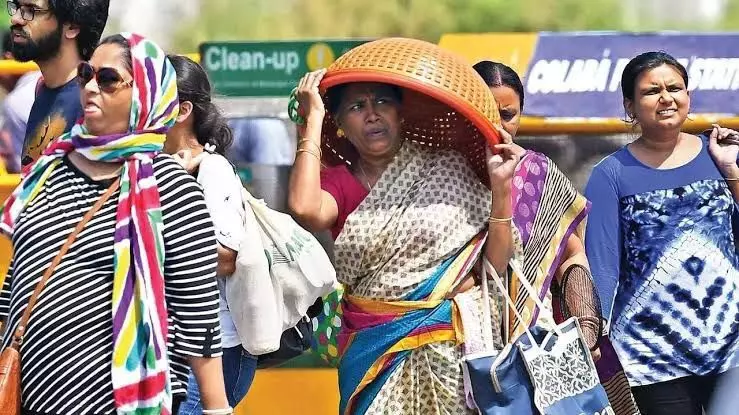India's killing heatwave: 143 people die of heat stroke; pregnant women, elderly, children worst hit
The summer of 2024 is considered to be the worst in the last 100 years, with the maximum temperature soaring above 50 degree Celsius in Delhi, with intense rainfall in June
By Neelambaran A
Hyderabad: Of the 365 days in 2023, the number of extreme weather events reported in India was a staggering 318. The events include heavy rainfall, landslides, floods, cold waves, heat waves, and cloudbursts.
The increasing number of such events in the first half of 2024 indicates the impacts of climate change. The summer of 2024 is considered to be the worst in the last 100 years, with the maximum temperature soaring above 50 degree Celsius in Delhi, with intense rainfall in June.
The sudden change in climatic conditions, particularly the heatwaves, doesn’t augur well for pregnant women, senior citizens, and children, since they are more prone to adverse impacts due to changing conditions.
Worst summer in 100 years
The Union Ministry of Health has reported 143 deaths due to heat waves till June 20, while around 42,000 heat stroke cases have been reported. Several cities recorded over 50 degrees Celsius, making the summer one of the worst in recent years.
The people of Delhi are the worst affected since January 2024, with cold waves and heat waves coupled with heavy rains affecting lakhs of people. Even worse, the month of June accounted for high temperatures and heavy rains.
Impact on pregnant women
Several studies have found that extreme hot climates can affect pregnant women, even leading to miscarriages and stillbirths. Occupational heat exposure is a prime reason for the adverse impact.
A study by Sri Ramachandra Institute for Higher Education and Research in Chennai has found that women in rural areas with less access to toilets, drinking water, and shade are prone to miscarriages and preterm birth.
The result found that 5% of the women had miscarriages, 6.1% delivered preterm babies and 8.4% had delivered underweight babies. The women in the organized sector had relatively lower risk with 2% miscarriages, 2.6% preterm babies, and 5.4% low birth weight. The lack of access to healthcare facilities in rural areas contributes to the troubles of pregnant women.
Elderly and children susceptible to climate changes
Another section badly affected by the sudden and frequent climate changes is people above the age of 65 and children.
Dr Shiva Raju, senior consultant physician and diabetologist from KIMS Hospital, Hyderabad said, “These age groups have lower immunity and are prone to be affected, hence require extra precautions and care. Even though the human body can adapt to changing climate, the frequent changes need more care”.
Elderly people with diabetes and heart ailments are prone to suffer more due to high temperatures.
Fluctuating temperature brings physiological issues.
The excess heat during the summer demands more fluids and liquids for maintaining the hydration of the human body. Excess heat may lead to dehydration, resulting in vomiting and fatigue.
“The fluctuating temperature can result in body pain, headache, fatigue, and weakness. This may not be universal but calls for precaution and all must stay hydrated”, Dr Shiva added.
The winter season brings an extremely different set of challenges with water and food contamination resulting in illness.
“The rainy season raises the possibilities of seasonal infections including dengue, aggravated asthma, diarrhea, typhoid, hepatitis A and B. People must consume only boiled water to stay safe”, Dr Shiva said.